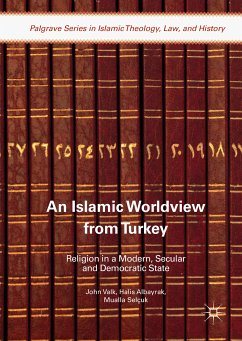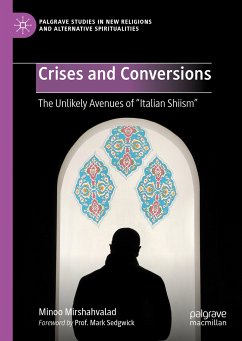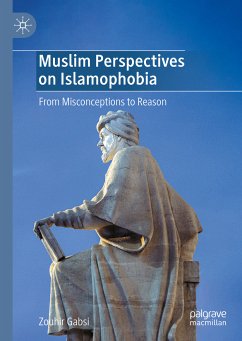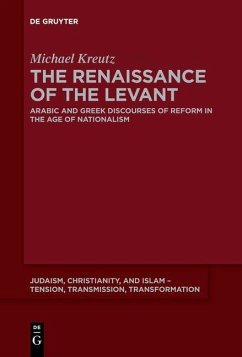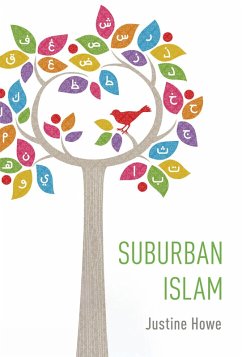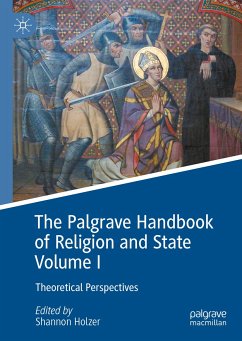
Between Jabal ¿Amil, Karbala and Jerusalem (eBook, PDF)
The Lebanese Shi'a and the Struggle for Palestine
Versandkostenfrei!
Sofort per Download lieferbar
104,95 €
inkl. MwSt.
Weitere Ausgaben:

PAYBACK Punkte
52 °P sammeln!
This book tells the story of the Lebanese Shi'a and their development from a marginalized, discriminated minority to a highly politicized community that has given birth to Hezbollah, one of the most powerful paramilitary forces in the contemporary Middle East. It explores the Arab-Israeli conflict through the lens of Shi'a intellectuals and scholars from South Lebanon, and chronologically reflects on trending perceptions of Palestine, the Zionist movement, and the Jewish community in Lebanon. The monograph illustrates how Zionism and the establishment of Israel played a decisive role in the in...
This book tells the story of the Lebanese Shi'a and their development from a marginalized, discriminated minority to a highly politicized community that has given birth to Hezbollah, one of the most powerful paramilitary forces in the contemporary Middle East. It explores the Arab-Israeli conflict through the lens of Shi'a intellectuals and scholars from South Lebanon, and chronologically reflects on trending perceptions of Palestine, the Zionist movement, and the Jewish community in Lebanon.
The monograph illustrates how Zionism and the establishment of Israel played a decisive role in the intellectual revival of early Muslim perceptions of Jews. It demonstrates how political conflicts after 1948 have impacted the work of scholars such as Musa as-Sadr and Muhammad Hussein Fadlallah, and have triggered the formation of social and Islamist movements. It also shows how Hezbollah's leaders have used religious sources and Western anti-Jewish narratives to construct a deep-rooted ideology to support their struggle for South Lebanon and Palestine. The combination of social needs, religious beliefs and political interests forms the core of the analysis. This text appeals to students and researchers working within the convergence of politics and Middle Eastern religions.
Dieser Download kann aus rechtlichen Gründen nur mit Rechnungsadresse in A, B, BG, CY, CZ, D, DK, EW, E, FIN, F, GR, HR, H, IRL, I, LT, L, LR, M, NL, PL, P, R, S, SLO, SK ausgeliefert werden.



